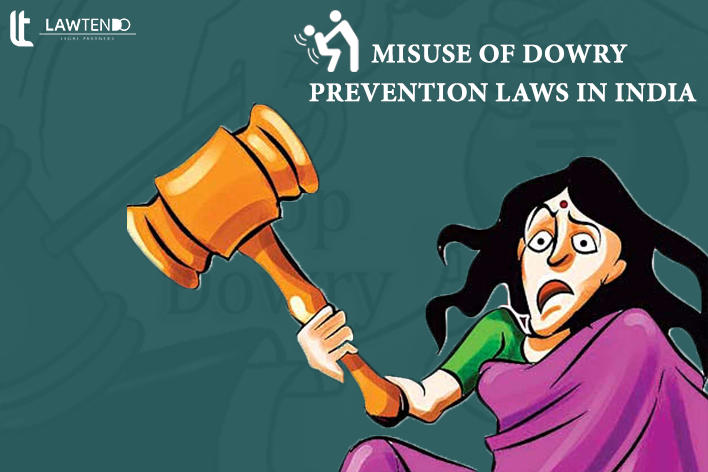Misuse of section 498a

Date : 19 Oct, 2019
Post By Sankul Nagpal
Articles 21 & 15 of the Indian Constitution guarantees every citizen to a life of dignity and respect without discrimination on the grounds of sex, race, caste, religion, and place of birth. Since the very inception of the world’s largest democracy, efforts are being made to protect the interest of the weaker sections including women.
India has also, time and again, ratified International Convention like the Convention for Elimination of all Forms of Discrimination against Women (CEDAW) and thereby invested in protecting the interest of women from matrimonial cruelty and other discriminations. In 1983, the Indian Penal Code was amended and Section 498A was introduced to deal with post-marital cruelty faced by women in regard to the demand of dowry made by the husband and/or his relatives. Before the amendment, India already had Dowry Prevention Act and the IPC both of which dealt with offenses such as abetment to suicide and causing hurt but none of these laws provided specific protection or safeguard to women who were dying because of dowry violence
What is Section 498A?
Section 498A was designed to protect women from ‘Cruelty’ from her husband and/or his relatives. Section 498A of the Indian Penal Code is a provision under which a husband, his parents, and relatives can be booked for subjecting a woman to cruelty to meet their unlawful demands (dowry).
This new Section of 498A is often dubbed as the Dowry Law of India. Sec 498A puts the burden of proof on the accused to prove his innocence, and thus unlike other laws under sec 498A the accused is considered to be guilty until proven innocent.
The offense under this section is non-bailable & cognizable offense and the husband and in-laws can be arrested immediately after the complaint by women. It is a provision where police require no warrant to make an arrest.
The Misuse of Section 498A
In the modern era, where laws have reformed the way we perceive social institutions and gender, the change hasn’t been favorable in all spheres. Often laws with loopholes become an easy tool of misuse and harassment. The situation worsens when laws that empower particular strata of the society over the others are misused.
Time and again a common argument has been raised against laws relating to violence against women in India and its misuse by women. The police, civil societies, politicians and even judges of the High Courts and Supreme Court have affirmed these arguments of the "misuse” of laws quite openly. The allegation of misuse is made particularly against Sec 498A of the IPC.
Though many women took the help of this provision to get justice and freedom from their cruel matrimonial relationships, there have also been cases of innocent men and their families being falsely implicated.
This section is often used by women to harass their husbands and their family members. The example can be taken from the Nisha Sharma Dowry Case 2003 where the media and government praised Nisha Sharma for her bold action taken against her husband and his cruelties, but after nine long years, it was finally revealed that her case was to mislead and cover up her illicit affair.
The present scenario
Supreme Court in the wake of the constant misuse of section 498A has recently put an end to automatic arrests under the law. As per the Supreme Court, the complaint will now be referred to as Family Welfare Committees that will be set up in every district. Arrests will not be made until the committee investigates the following matter. These stated rules will not be applicable in the case where a woman is injured and dead.





